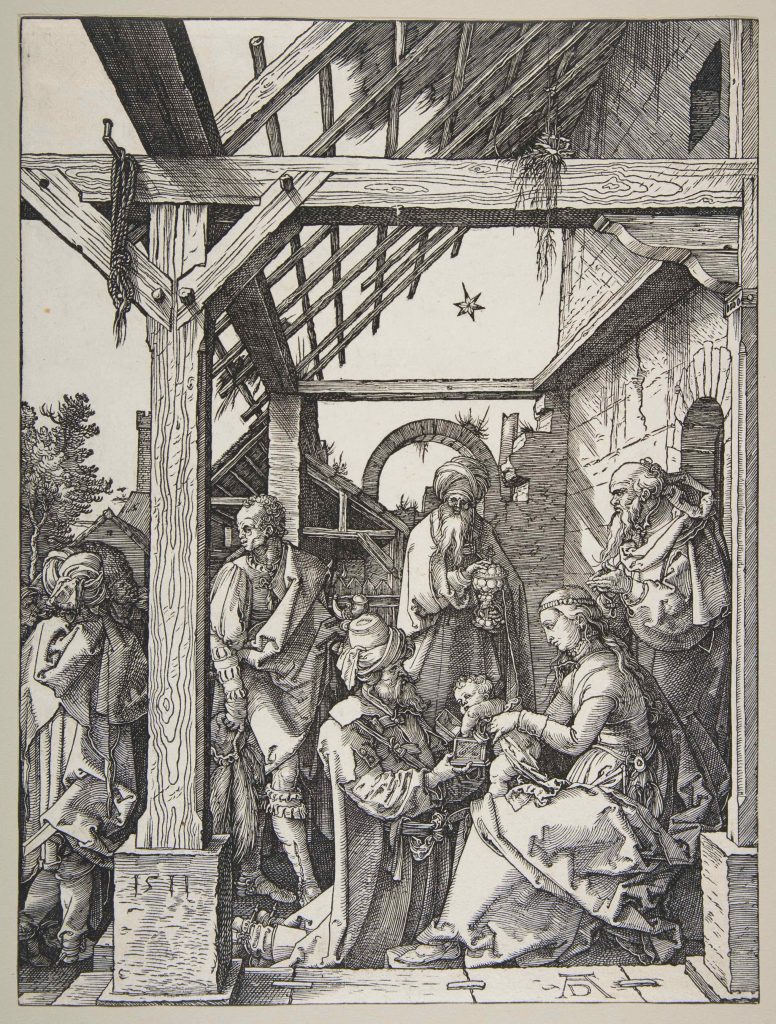
The Magi have traveled a very long way to see the Messiah. Now they come to the climax of their trip. As usual, Matthew is concise and to the point. The story of the Magi concludes in a staccato burst of information, “On coming to the house, they saw the child with his mother Mary, and they bowed down and worshiped him. Then they opened their treasures and presented him with gifts of gold and of incense and of myrrh.” All of this information is easy to grasp, for it involves real people doing physical things (seeing, bowing, opening, presenting) with very tangible items (house, child, treasure, gifts).
But then Matthew notes, “And having been warned in a dream not to go back to Herod, they returned to their country by another route.”
The dream is different. It is not like the other components in the conclusion of the Magi’s story. Dreams are internal and private and not tangible at all. Dreams are about ideas. Matthew is making sure we know that just as the story of the Magi started with supernatural communication (the very public and tangible star leading them to Christ), so it ends with a supernatural communication.
What the Magi experience is actually common in the Scriptures. The Lord spoke to Abraham while he was sleeping (Gen 15:12), He spoke to Jacob in a dream (Gen 28:12, 31:8). He spoke to Joseph repeatedly in dreams (Gen 37:5,9). All through the Scripture we read of Him speaking to His people in dreams and visions. And actually, not only His people! We also read how God speaks to Gentiles through dreams. He spoke to Abimelech (Gen 20:3), Laban (Gen 31:24), Pharaoh (Gen 41:1) and Nebuchadnezzar (Dan 2:1). God speaks in dreams to all manner of people. In fact, it is no secret that in our day, God is speaking to many of the lost children of Ishmael (the Muslims) in dreams and visions, telling them of Jesus, that they might think twice about Jesus and ultimately be saved by Jesus.
In his book, A Wind in the House of Islam, David Garrison asserts that in our day, God is speaking to Muslims around the world through dreams and visions of Jesus Christ. As Muslims seek out what the experience of their dream meant, they find themselves interacting with Christians and being introduced to the Kingdom of God through Christ.
When Garrison’s book came out in 2014, it sparked a wave of wonder. It wasn’t that no one thought God could speak through dreams – He’s been doing that since the patriarchs – but that no one thought He would speak to multiple people through dreams with a common meaning to a common cause. It was as though people were astonished that Joel 2:28 could have application on non-Christians, even though no less than the apostle Peter applied it to non-Christians in Acts chapter 2.
We should not be disturbed by that. God is gracious to all who honestly seek Him. Perhaps He uses dreams and visions only because they are a means that people think twice about. This is one way we can know God is speaking to us – He speaks using different media over time, that we might “get” the message and not overlook it.
Such is His way. First God speaks in a public way to “everyone who has ears” – perhaps a sermon preached to dozens or hundreds of others, or something you hear broadcast on the radio, or a passage in His widely available Word – and then there is the very personal application that His Spirit gives to you. Always, what starts as a publicly communicated message ends in deeply personal application.
Dreams are just dreams – they are no substitute for God’s written Word. But when a dream lines up with what God has told you in His Word and by His Spirit, you know you ought to pay attention.
Marcus Verbrugge
APPLICATION: Intentionality
Has God ever spoke to you or to one of your friends in a dream? How did you know it was God and not just a wild dream or a demonic influence? How did you respond then? How will you respond if He does speak to you in a dream? For in Joel 2:28 the Word says, “It will come about after this that I will pour out My Spirit on all mankind; And your sons and daughters will prophesy, Your old men will dream dreams, your young men will see visions.”



